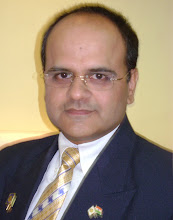Wikileaks sets off a worldwide diplomatic crisis
US diplomats are scrambling fervently to protect the US from the fallout but with technology the way it is today there will be hundreds of thousands of articles across the web well before this day is out.
This is one of the major problems of the Information Age! The speed at which information travels has fundamentally changed the world that we live in.
Twitter will no doubt be trending very heavily on some of the admissions. Some of the highlights will include these 'allegations' ... (use hash tag #cablegate to see all the comments on twitter)
Saudi Arabia - One of the most damaging allegations was that Saudi Arabia’s King Abdullah repeatedly urged America to attack Iran.The Saudi leader was recorded as having “frequently exhorted the US to attack Iran to put an end to its nuclear weapons programme”. The leak said he told the Americans to “cut off the head of the snake” at a meeting in 2008. The leaks also disclose how leaders in Saudi Arabia, the United Arab Emirates and Egypt referred to Iran as “evil” and a power that “is going to take us to war”.
Pakistan - Grave fears in Washington and London over the security of Pakistan's nuclear weapons programme, with officials warning that as the country faces economic collapse, government employees could smuggle out enough nuclear material for terrorists to build a bomb.
China - How the hacker attacks which forced Google to quit China in January were orchestrated by a senior member of the Politburo who typed his own name into the global version of the search engine and found articles criticising him personally.
Russia & Italy - The extraordinarily close relationship between Vladimir Putin, the Russian prime minister, and Silvio Berlusconi, the Italian prime minister, which is causing intense US suspicion. Cables detail allegations of "lavish gifts", lucrative energy contracts and the use by Berlusconi of a "shadowy" Russian-speaking Italian go-between.
Afghanistan - Suspicions of corruption in the Afghan government, with one cable alleging that vice president Zia Massoud was carrying $52m in cash when he was stopped during a visit to the United Arab Emirates. Massoud denies taking money out of Afghanistan.
Russia - Allegations that Russia and its intelligence agencies are using mafia bosses to carry out criminal operations, with one cable reporting that the relationship is so close that the country has become a "virtual mafia state".
United Kingdom - Devastating criticism of the UK's military operations in Afghanistan by US commanders, the Afghan president and local officials in Helmand. The dispatches reveal particular contempt for the failure to impose security around Sangin – the town which has claimed more British lives than any other in the country.
Saudi Arabia & Yemen - The cables names Saudi donors as the biggest financiers of terror groups, and provide an extraordinarily detailed account of an agreement between Washington and Yemen to cover up the use of US planes to bomb al-Qaida targets. One cable records that during a meeting in January with General David Petraeus, then US commander in the Middle East, Yemeni president Abdullah Saleh said: "We'll continue saying they are our bombs, not yours."
France & Iran - The leaked memos also disclose how American diplomats compared Iran’s President Ahmedinejad with Adolf Hitler and labelled France’s President Nicolas Sarkozy as the “emperor with no clothes”.
Germany & Russia - In various cables from the US embassies the German Chancellor Angela Merkel was depicted as “risk aversive”, while the Russian prime minister Vladimir Putin was an “alpha dog”.
Key figures:
- 15, 652 secret
- 101,748 confidential
- 133,887 unclassified
- Iraq most discussed country – 15,365 (Cables coming from Iraq – 6,677)
- Ankara, Turkey had most cables coming from it – 7,918
- From Secretary of State office - 8,017
According to the US State Departments labeling system, the most frequent subjects discussed are:
- External political relations – 145,451
- Internal government affairs – 122,896
- Human rights – 55,211
- Economic Conditions – 49,044
- Terrorists and terrorism – 28,801
- UN security council – 6,532
There is so much that goes on in the background that 'joe public' doesn't know about as countries position themselves with and against each other to secure natural resources , business deals etc. Julian Assange, the founder of WikiLeaks, has put in motion an unstoppable force. The WikiLeaks site was being heavily targetted by a cyber attack yesterday and the virtual flames will continue for many months.
(Thanks : http://www.pocketinfo.net/)

No comments:
Post a Comment